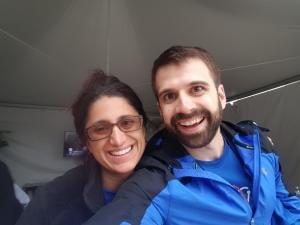About Me
I provide carpentry, woodworking, home renovation and other services to customers in Southern Delaware through Cape Henlopen Carpentry LLC. Prior to that, I worked full time in political communication for progressive organizations and causes and still provide some consulting services related to long-form writing and editing.
If you're interested in working together, please don't hesitate to reach out. You can reach me at aaronhuertasATgmail.com.
My family and I are based in Lewes, Delaware. Here's my LinkedIn and a copy of my resume.
Career Highlights
I spent the bulk of my early career at the Union of Concerned Scientists (UCS), where I helped researchers communicate with policymakers and respond to bad faith attacks on their research, including censorship and political interference. As science communication became an increasingly important part of the scientific community's work I started conducting workshops and compiling communications guides for scientists.
In 2014, I analyzed a year's worth of cable news coverage of climate science, which led to significant improvements at CNN, where shows were still hosting debates about the reality of climate change.


In 2016, I became increasingly worried that Donald Trump would win the presidency and took a leave of absence from my day job to run a field office for NextGen Climate in Athens, Ohio. While I'd volunteered for campaigns before, this was first time doing full-time voter registration and mobilization work.

After Trump won, a lot of new groups sprang up, including 500 Women Scientists, a science-justice focused group. I served on their national advisory board for several years and helped launch their voter mobilization programming.
I also volunteered with the national March for Science organization in 2017 and joined other volunteers to speak out against organizational mismanagement post-march. Thankfully, the march included some happy memories, especially meeting Dr. Mona Hanna-Attisha, who exposed the deadly lead poisoning in Flint's water supply.

I also started working with Swing Left, a grassroots group that connected volunteers to their closest competitive House district. I served as the organization's strategic communications director, which involved a lot of work on messaging and translating between our field and tech teams to make sure volunteers were getting what they needed to organize. We also discovered that the progressive movement was running short on email practitioners, so I stepped up to lead our email program, which wound up raising $10 million for House candidates and connecting 1 out of every 12 Swing Left subscribers with a canvassing or phonebanking shift, wildly exceeding even our own ambitious expectations.
I'm especially proud of that email program because we fully integrated our field team into developing custom content based on specific House districts and local voter contact goals. That detailed work, — including training up a team of email volunteers who personally responded to subscribers — paid off with people understanding where their time would be best used and taking action.

With Democrats back in control of the House, I also had an opportunity to serve in a government startup, in this case as the communications director for the U.S. House Select Committee on the Climate Crisis. I created the first caucus-wide messaging platform for climate and clean energy issues and also got to integrate the "warming stripes" into what may be the first government logo that directly integrates scientific data.

After launching the committee, I went back to working with voter registration and mobilization groups, including a startup—We Can Vote—that connected public health officials and election administrators as they responded to the COVID-19 pandemic and relatively rapid changes to election practices. We delivered several million dollars worth of programming, including online ads and paper voter guides distributed through health clinics.
The pandemic also gave me an excuse to learn how to do audio production, so I launched the Close Read podcast, which ran weekly episodes for several months. I also volunteered as a street medic during the Black Lives Matter uprisings in Washington, DC, where I scouted ahead of marchers to clear vehicle traffic and provided basic first aid to demonstrators, including following the June 1 tear gas attack at Lafayette Square.
In late 2020, I started working with Catalist, a progressive data utility that provides voter file and membership services to Democratic campaigns, public interest groups and unions. As their communications director, I represented the organization to journalists, wrote explainers for clients and edited the gold standard What Happened series, which offers a voter file view of the electorate after major contests. Along with my colleagues, I helped organize the Catalist union, which is affiliated with the Communication Workers of America's CODE-CWA campaign.
While I value the work I've been able to do in politics I found that opportunities in our field were increasingly constrained by a lack of long-term investment in earned media and content creation. At the same time, most organizations and elected officials have not adapted to a modern media environment, leading to a strategic misalignment with many communications practitioners, myself included. My remaining consulting work in the field focuses on long-form editing and writing, which I've always deeply enjoyed.
After our family relocated to Lewes, DE I finally had workshop space and started teaching myself carpentry, woodworking, laser engraving and other skills. I also took on coursework in construction technology through the Delaware Technical Community College to help fill gaps in my knowledge. In 2025, I went out on my own with Cape Henlopen Carpentry LLC.
Verification code for Mastodon.